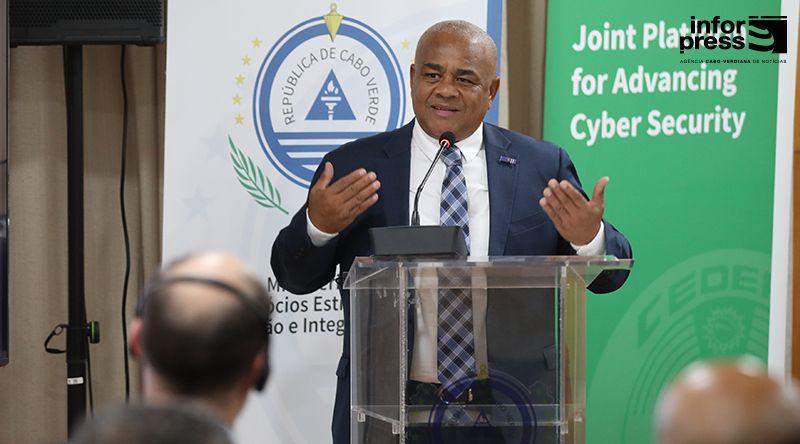Africa-Press – Cape verde. Cape Verde will host a regional training course in cybersecurity and digital diplomacy from Monday to Thursday, the 13th, bringing together diplomats, technicians, and trainers from West Africa. The course aims to strengthen skills and promote strategic impact in digital security and regional diplomacy.
The initiative, organized by the Diplomatic Institute of Cape Verde (IDCV) in partnership with ECOWAS, the European Union, the German government, and the Diplo Foundation, seeks to strengthen competencies, train personnel, and generate strategic impact in digital security and regional diplomacy.
The Director-General of the IDCV, Ambassador António João Nascimento, highlighted at the opening of the training that it is “a great honor” for the institute, still in its installation phase, to host a regional-level training course on “one of the greatest current challenges,” which is cybersecurity and cyberdiplomacy.
The diplomat emphasized that Cape Verde has taken “significant steps” in the digital landscape, highlighting the creation of the Data Center, the inauguration of the Cape Verde Technology Park, the institutionalization of the national CERT (Center for Technological Innovation and Regulation), and the approval of a National Foreign Policy Strategy.
“These advances must be accompanied by a coordinated and integrated approach, involving diplomacy, regulation, the digital economy, and security,” he said.
For Nascimento, cybersecurity and digital diplomacy represent complex and multidimensional challenges.
Thus, he continued, just as climate change has redefined the economy and foreign policy, the challenges of new internet technologies and artificial intelligence raise questions of governance, data protection, ethics, and security.
“The protection of critical infrastructure and the fight against acts of sabotage, terrorism, and espionage require articulated responses and refined cyber diplomacy,” he said.
Nascimento also reinforced that all areas of the country must work in close coordination, arguing that everyone must act together to define cybersecurity policies as a vital national interest.
In turn, the Head of Cooperation at the European Union Delegation in Cape Verde, Cristóbal Delgado Matas, highlighted that the EU is “firmly committed” to supporting partner countries in digital transformation “in a sustainable and resilient way” and that cybersecurity “is not optional but rather the essential foundation for states, economies and societies”.
Delgado Matas presented concrete investments from the Global Gateway initiative, highlighting the Safe Digital Boost Africa program, valued at €100 million, which aims to strengthen regulatory frameworks, protect critical infrastructure and promote e-governance in Africa.
In Cape Verde, he recalled, the European Union and its member states have already mobilized €37 million to support the implementation of the 5G network, digital innovation, technological inclusion and the protection of critical infrastructure.
The program brings together approximately three dozen participants, including diplomats, technicians, and international trainers from West Africa, and will address cyber risk management, security incidents, protection of critical infrastructure, information sharing on digital threats, and information governance, empowering regional personnel to address emerging cyberspace challenges.
For More News And Analysis About Cape verde Follow Africa-Press






